#Language
Text
All I'm saying is anybody who thinks the Japanese animation industry commits uniquely baffling crimes upon the English language has not properly appreciated what it does to German.
761 notes
·
View notes
Text
We ask your questions so you don’t have to! Submit your questions to have them posted anonymously as polls.
#polls#incognito polls#anonymous#tumblr polls#tumblr users#questions#polls about language#submitted dec 17#language
571 notes
·
View notes
Link
In today’s new Longreads essay, Montserrat Andrée Carty writes about family and identity, growing up around different languages and cultures, and eventually embracing (and loving) her name over time.
We seek to become the truest version of ourselves, but what if there isn’t one true version, but multiple? Like father, like daughter, there are two versions of me.
At 5, I spoke all these languages fluently. Today, I only speak two of them, but understand all of them in some way, as they still live inside me.
Read her beautiful personal essay on Longreads.
294 notes
·
View notes
Text
hehehehe i got a thermal label printer that can handle Yiddish/Hebrew letters
time to label everything in the house with Yiddish vocabulary words :3
135 notes
·
View notes
Note
My apologies, what I meant is that most of your languages are made for fantastic, fantasy worlds, as opposed to a fictional culture on Earth. If you're creating a language for a culture set on Earth, you'd probably incorporate features that tie it to a real language, am I correct?
I think you still may be misunderstanding what the key questions are and how they factor into language creation. There are two questions:
Is this language supposed to be descended from an existing language (or set of languages) on Earth?
Is this language spoken by creatures that are identical to humans in all the ways that play a crucial role in language use, comprehensijon, and transmission?
These are the only relevant questions. Notice I didn't say anything about where the languages are spoken. That bit is irrelevant. Language has its own geography and it's the only geography that matters when it comes to a posteriori language construction.
For example, looking at Dothraki, the answer to (1) is no, and the answer to (2) is yes. For that reason, Dothraki should be a language that looks entirely ordinary, in terms of how it stacks up with languages spoken currently on Earth, but its vocabulary and grammar shouldn't be directly related to any language on the planet. How could it be, if our planet doesn't exist in that universe? But since Dothraki are completely ordinary human beings their language should be a compeltely ordinary human language.
If you look at the aliens District 9, the answers to both (1) and (2) are no, despite the fact that the movie takes place in South Africa. And, in fact, you see some very interesting linguistic phenomena in that movie, where you have two species that understand but cannot use each other's languages. Its setting, though, doesn't mean that the alien language should be influenced by Afrikaans in any important way, though. It may have "borrowings", but even those would be strange (calques, most likely), since the aliens can't actually make human sounds—the same way the humans wouldn't have "borrowings" from the alien language.
On the other hand, if you look at Trigedasleng, the answers to both (1) and (2) are yes. But the suggestion you seem to be making is that I might kind of haphazardly "borrow" features from an existing language into a language that I'm nevertheless creating from scratch. That wouldn't make sense. Trigedasleng is simply an evolved form of American English with some specific constraints (some quite unrealistic, due to the scifi setting) placed on the evolution. I didn't "incorporate" features from American English: it IS American English, through and through, evolved in a way that makes sense for the setting.
There are certainly a posteriori conlangs where the creator approaches the creation of the language by saying, "I took the initial consonant mutation of Irish and combined it with the triconsonantal root system of Arabic and added the Turkish plural suffix (with vowel harmony) and added the accusative from Esperanto", and the like. This is one of the hallmarks of an amateur conlanger. Not even a creole language in the real world does this. Creole languages draw influences from many different languages, but the resulting system can't be divided up neatly into different linguistic sources. Furthermore, the result is a coherent system that doesn't look like any of the sources. Tok Pisin gets a lot of its vocabulary and grammar from English, but also gets vocabulary from German and other languages that were native to the region. When listening to the language, though, it's not like it sounds like English, then it suddenly sounds like German for a word, then it sounds like a Papuan language, then back to English: the whole thing sounds like Tok Pisin. It's a seamless, coherent system—just like any language, since all languages on Earth have borrowings and features from other languages.
Also, minor nitpick: "real" language doesn't make sense. We say natural language vs. constructed languages. Both are equally real, in that neither has any kind of material existence. A constructed language is a real language with a fake history.
Does this make sense?
56 notes
·
View notes
Text

Sign on the subway platforms in Bilbo. Let's translate word by word:
(1)Tren - (2)a -- (3)geldi -- (4)dago - (5)enean -- (6)sartu
(6)Get on - (5)when - (2)the - (1)train - (4)is - (3)stopped / still.
#euskal herria#basque country#pays basque#pais vasco#euskadi#euskera#euskara#basque#language#bilbo#bilbao#bizkaia#signs
31 notes
·
View notes
Text

Duke, -duce, Herzog & ziehen
Duke comes from the Latin word dux (leader). It's related to the verb dūcere (to lead; pull), whence English -duce, for example in to seduce (whose original Latin meaning was 'to lead astray').
The second part of German Herzog (duke) is cognate to dux. This part, -zog, is related to the German verb ziehen (to pull), cognate of dūcere.
Old English had cognates of both words. Its counterpart of Herzog was heretoga (army leader). In Middle English it became heretowe, which would've become modern *hartow. The Old English cognate of ziehen was tēon. This verb would've become *to tee if it had continued to exist. See the infographic for information about its past tense and past participle.
#historical linguistics#linguistics#language#etymology#english#latin#french#dutch#german#spanish#old english#old french#old dutch#old saxon#low saxon#old high german#old frisian#frisian#romanian#catalan#portuguese#greek#venetian#gothic#lingblr
36 notes
·
View notes
Text
Being bilingual in an english-dominated space is funny as fuck because I will randomly forget mundane words and also I will butcher my English thank you very much.
ALSO
It's even funnier when you're learning a 3rd language in which you start to actively form thoughts (and verbal sentences) as practice because then you have double the struggle.
Google translate is my best friend lmao
And even better is if you have friends who speak speak same language as you and then y'all just communicate in that language (in mine and @books-n-musicals and @iiamly0 s case german) with the knowledge that you keep the others standing like 🧍❓❓
It's hilarious and also feeds into my (still mild) superiority complex that I have a grasp on a language most of my moots don't (@half-eaten-baguetteee and @imobsessedwiththeatre don't count since I can't speak either French or Polish)
Lol
This was me yapping
21 notes
·
View notes
Text
The University of Grenoble (France) wants is planning to remove Catalan classes from its curriculum next year. The students are organising this campaign to ask the university to keep it. Help them by signing this petition!
#coses de la terra#català#catalan#minority languages#minority language#minoritized languages#langblr#education#polyglot#language learning#university#languages#language
32 notes
·
View notes
Text
hey 🇭🇰Cantonese🇲🇴 learners!
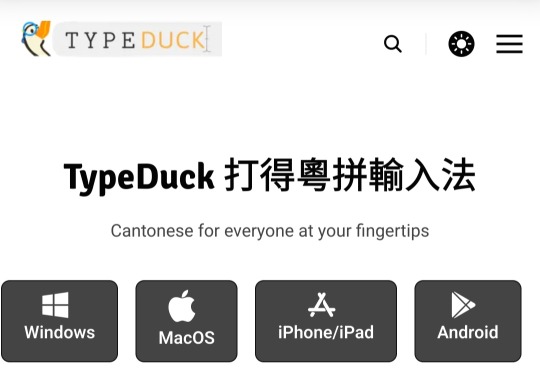
I got recommended this keyboard App called TypeDuck🦆by anwar @ Insta that you may like to check out! (If you haven't heard of, or aren't already using, that is!)
Even though I have yet to try it (long story involving my phone being wonky so I can't install this for myself, for now), cantonese4parents @ Insta already has, and it's available on Playstore, so I'd expect it has been vetted safe enough!
Apparently if you use this keyboard to type out in 粵拼 Jyutping (Cantonese Romanisation, equivalent to Mandarin's Pinyin system), it will show you not only the Jyutping spelling but also the English meaning alongside the 漢字 Chinese characters! ↓


Besides English, it apparently supports some less common language translations like “Hindi, Nepali and Urdu” (quoting from their website) too.
Very useful I think, for anyone who's not good at recognising/mapping the 漢字 to the 粵拼 yet! 😺
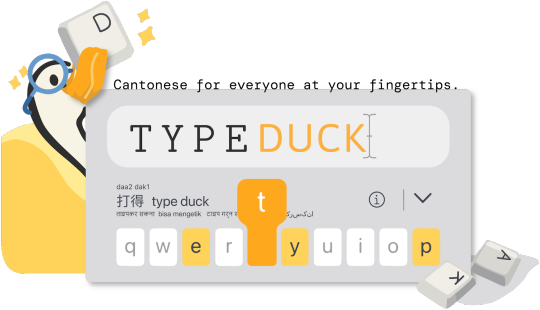
Trivia: If you're wondering why this App is called “TypeDuck” 🦆, it's because it's a play on 打得 in Cantonese (Jyutping: daa² dak¹), which means “able to type”! Great pun! Yes? 😸
23 notes
·
View notes
Text
According to The National Institute on Deafness and Other Communication Disorders (NIDCD), Autism Spectrum Disorder, or ASD, can affect children's language development and communication in a variety of ways. While some children with ASD may encounter difficulties communicating verbally, others exhibit impressive vocabularies and the ability to speak on specific topic areas in detail. A new study led by Boston University neuroscientist Dr. Andrey Vyshedskiy examines these unique pathways of language development in autistic children. Published in npj Mental Health Research, this research, encompassing data from over 31,000 autistic individuals, stands as the most extensive of its kind on language comprehension acquisition in autism. Dr. Vyshedskiy's study supports an idea he had more than two decades ago: that language learning for autistic individuals doesn't happen in a straight line but goes through three different stages. In this Q&A, he discusses the key takeaways from the research, and its implications for clinicians, educators, and caregivers. (Read more at link)
17 notes
·
View notes
Text

34K notes
·
View notes
Text
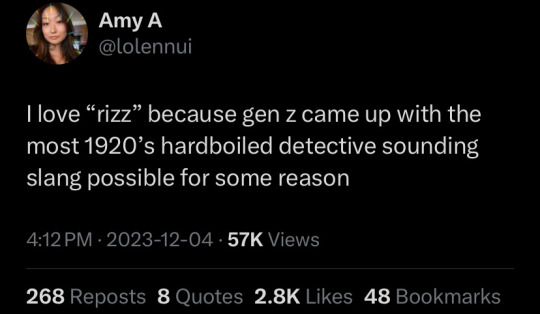
48K notes
·
View notes
Text




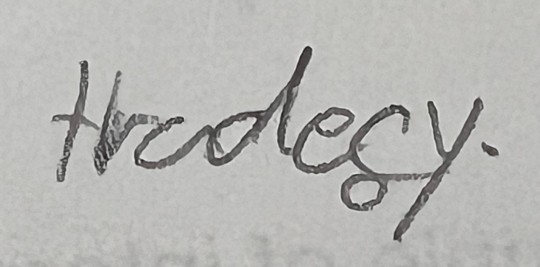
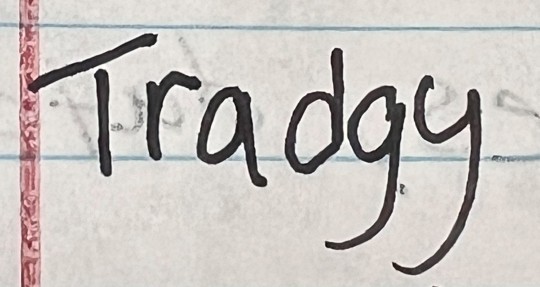
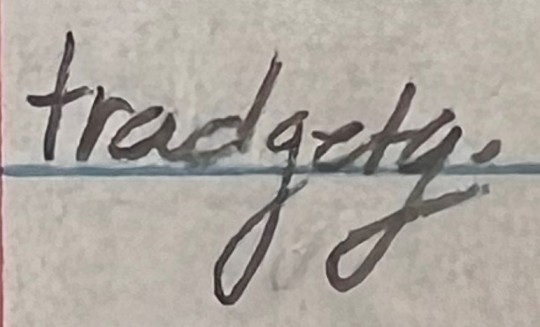
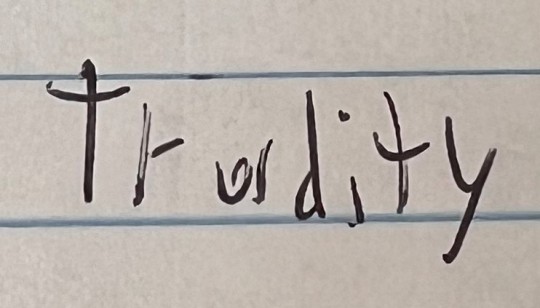
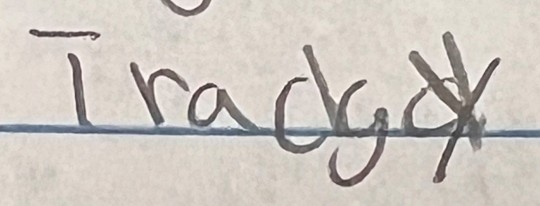
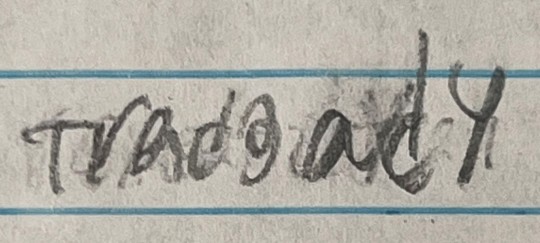





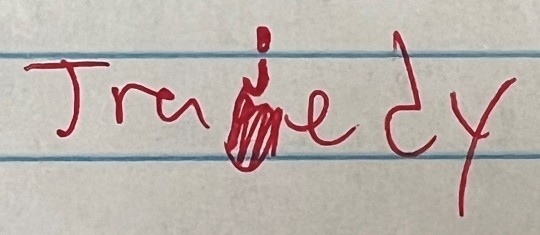




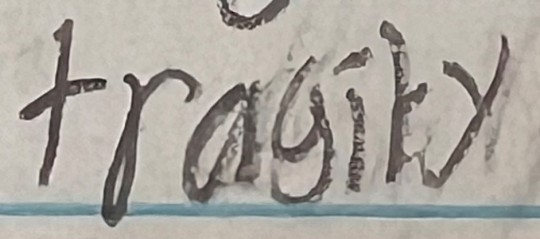
Another year, another group of my delightful ninth graders trying to spell the word "tragedy" for their Romeo and Juliet assignment.
Last year's collection
#i started questioning how to spell it myself#but again... at least they knew the right answer#i love them endlessly#teacherblr#teacher life#teaching#english class#english teacher#grammar#literature#romeo and juliet#shakespeare#william shakespeare#language#tragedy
43K notes
·
View notes
Text
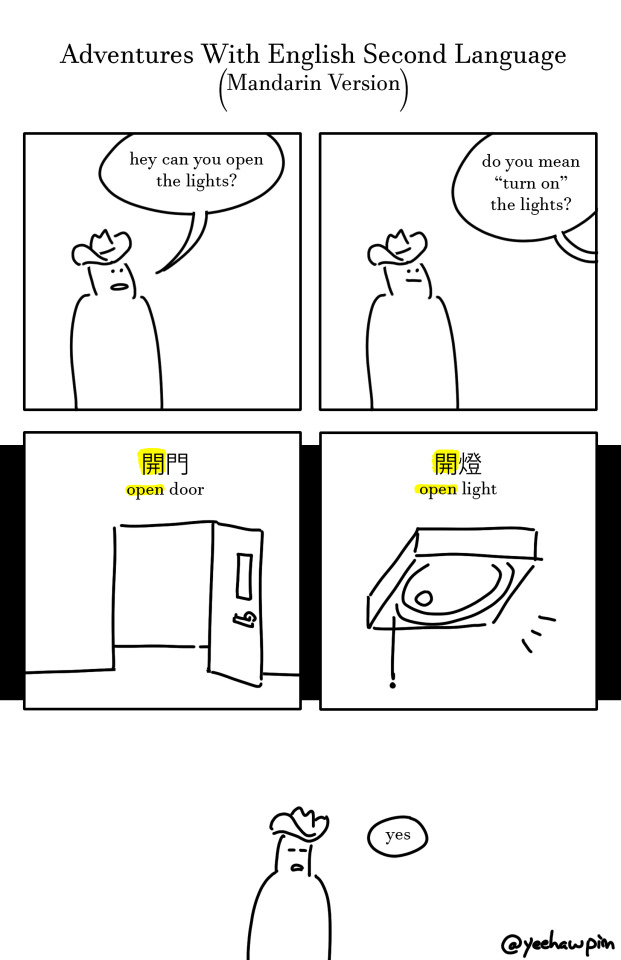
when your grammar accidentally transfers
#original comic#artists on tumblr#comic#linguistics#mandarin#digital art#language#black and white#my comic#my art
40K notes
·
View notes
Text
look, I know I've talked about this essay (?) before but like,
If you ever needed a good demonstration of the quote "Any sufficiently advanced technology is indistinguishable from magic", have I got an exercise for you.
Somebody made a small article explaining the basics of atomic theory but it's written in Anglish. Anglish is basically a made-up version of English where they remove any elements (words, prefixes, etc) that were originally borrowed from romance languages like french and latin, as well as greek and other foreign loanwords, keeping only those of germanic origin.
What happens is an english which is for the most part intelligible, but since a lot everyday english, and especially the scientific vocabulary, has has heavy latin and greek influence, they have to make up new words from the existing germanic-english vocabulary. For me it kind of reads super viking-ey.
Anyway when you read this article on atomic theory, in Anglish called Uncleftish Beholding, you get this text which kind of reads like a fantasy novel. Like in my mind it feels like it recontextualizes advanced scientific concepts to explain it to a viking audience from ancient times.
Even though you're familiar with the scientific ideas, because it bypasses the normal language we use for these concepts, you get a chance to examine these ideas as if you were a visitor from another civilization - and guess what, it does feel like it's about magic. It has a mythical quality to it, like it feels like a book about magic written during viking times. For me this has the same vibe as reading deep magic lore from a Robert Jordan book.
#off topic#literature#language#linguistics#science#science history#science fiction#fantasy#physics#atomic theory#anglish#chemistry#robert jordan#the wheel of time#uncleftish beholding
42K notes
·
View notes